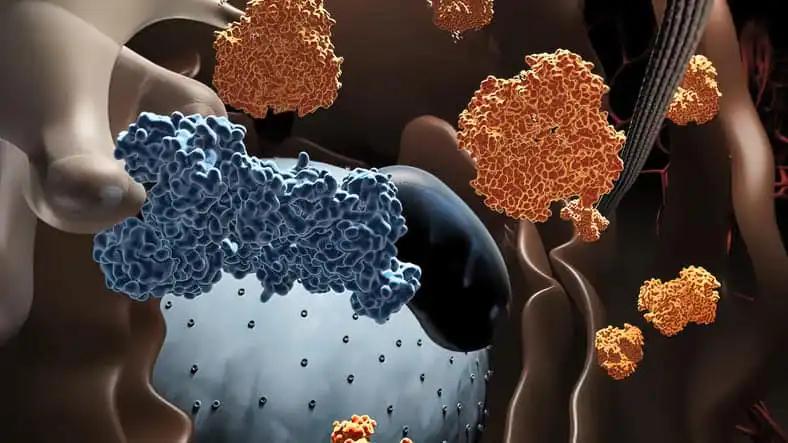KEY TAKEAWAYS
- The phase I MYTX-011 trial aimed to evaluate MYTX-011 ADC’s efficacy, safety, and pharmacokinetics in NSCLC pts.
- The dose escalation scheme will follow a Bayesian Optimal Interval design, and the RP2D will be determined based on safety, tolerability, and preliminary efficacy data.
- This study is expected to provide valuable insights into the safety, tolerability, and preliminary efficacy of MYTX-011.
Upregulation of cMET is a major obstacle in treating non-small cell lung cancer (NSCLC) with EGFR-TKIs. While MET inhibitors can be effective in some patients (pts), nearly half do not respond to them. Researchers aimed to evaluate MYTX-011 antibody-drug conjugate (ADC’s) efficacy, safety, and pharmacokinetics in NSCLC pts with cMET overexpression and resistance to EGFR inhibitors. This is a first-in-human dose escalation and dose expansion study.
The study will administer MYTX-011 intravenously every 21 days for up to 2 years. In Phase 1 (dose escalation), safety is assessed to establish the Recommended Phase 2 Dose (RP2D), [biologically active dose at or below MTD], among advanced NSCLC pts. Part 2 (dose expansion) will include NSCLC pts with cMET overexpression or MET amplification/exon 14 skipping mutations. In Part 1, subjects will be enrolled to evaluate the safety of escalating doses of MYTX-011 as a single agent and to establish the RP2D and/or MTD. The dose escalation scheme is based on a 3-subject cohort minimum Bayesian Optimal Interval (BOIN) design. The RP2D will be selected as a biologically active dose at or below the MTD (or the highest dose tested if an MTD is not identified during the study) and will be informed by safety, tolerability, pharmacokinetic data, and preliminary anti-tumor activity of MYTX-011 based on RECIST 1.1. Part 2 of the study will begin after determining the RP2D; subjects will be enrolled based on different cMET levels (IHC cutoff and/or MET genetic alterations) into multiple cohorts to explore preliminary antitumor activity [based on preclinical, published data, and tumor prevalence].
This study is expected to provide valuable insights into the safety, tolerability, and preliminary efficacy of MYTX-011, an antibody-drug conjugate targeting cMET, in pts with advanced NSCLC. Enrollment in this study is ongoing.
Source: https://ascopubs.org/doi/abs/10.1200/JCO.2023.41.16_suppl.TPS9147?af=R
Clinical Trial: https://classic.clinicaltrials.gov/ct2/show/NCT05652868
Alexander I. Spira, Melissa Lynne Johnson, George R. Blumenschein, Timothy F. Burns, Jonathan Robert Thompson, Amit Deshpande, William C Comb, Brian Fiske, Gilles Gallant, and Rebecca Suk Heist. DOI: 10.1200/JCO.2023.41.16_suppl.TPS9147 Journal of Clinical Oncology 41, no. 16_suppl (June 01, 2023) TPS9147-TPS9147



